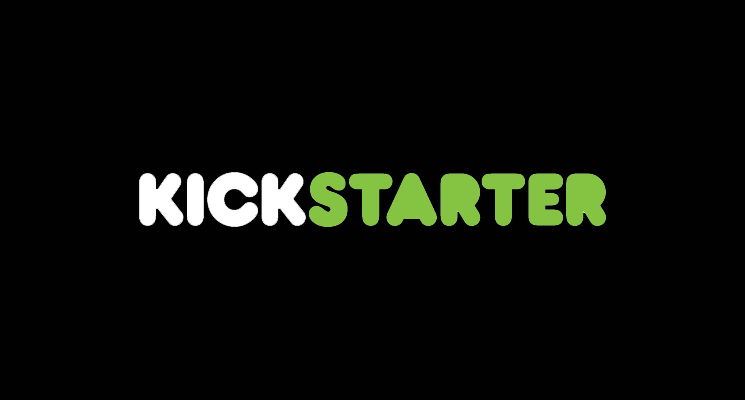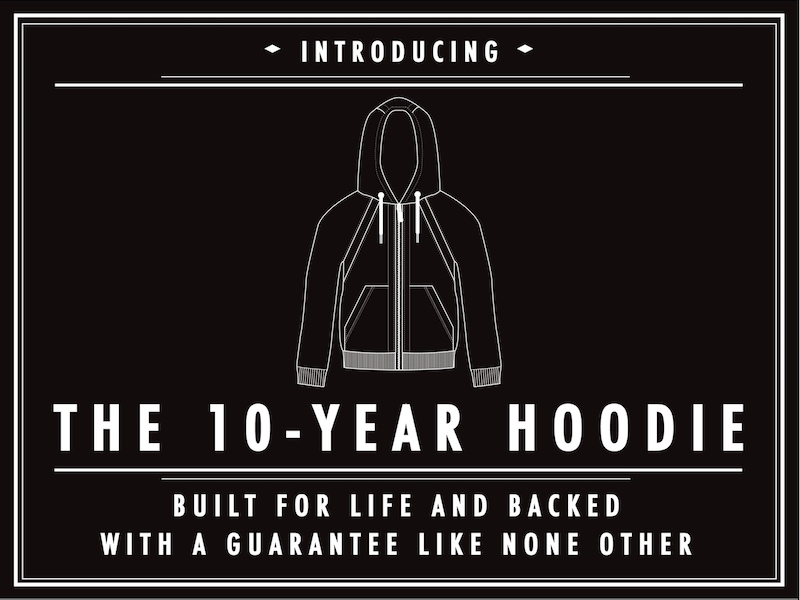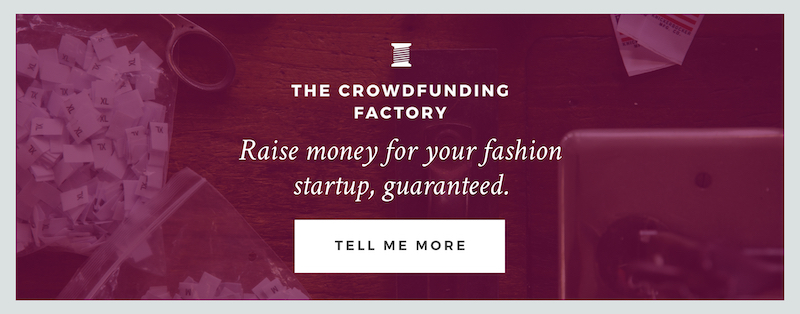Raise your hand if you’ve seen more fashion Kickstarter campaigns than you can count and you’re feeling kind of “over it”…
Considering that I dedicate an entire module of Factory45 to teaching entrepreneurs how to launch successful crowdfunding campaigns, I’m sure it sounds weird for me to say that.
But I’m going somewhere with this.
I regularly get emails from people who want me to share the news about their upcoming Kickstarters. Oxford button downs, dresses for the working woman, lingerie, kids clothes, you name it.
The problem isn’t in launching a Kickstarter.
I think crowdfunding is awesome – it reduces the risk of production, alleviates startup costs and provides free marketing and customer feedback.
The problem lies in the way the story is being told.
For the most part, the sustainable fashion projects going through Kickstarter aren’t saying anything different from the last one. The majority are riding the same wave:
- We manufacture in the USA.
- We use only the most sustainable fabrics.
- We say ‘no’ to fast fashion.
- We believe in a better planet.
Sound familiar?
As the same thing is being said over and over again, do you know what’s happening?
Consumers are shutting off and becoming numb to the same “our fashion saves the planet” mantra.
We’re now in a time when being asked to support a Kickstarter is becoming more common than contributing to the neighborhood kid’s bake sale (yum, do those still exist?)
If you’re going to ask people to support, share and back your campaign, then your story has to be unlike anyone else’s.
Yes, consumers are now more willing to pay a small premium for ethically-made products, but saying so shouldn’t be your marketing tactic. It should be an afterthought.
Kind of like, “Well yeah, of course our company manufacturers ethically and transparently.”
Or:
“Well yeah, of course we’re always pushing to use the most sustainable materials possible.”
The ethics and sustainability of a company should be embedded into the business model as a non-negotiable, not a strategy for saying: “Aren’t we so great? You should pledge to our Kickstarter.”
As the fashion industry becomes more and more accessible to new designers who want to launch their own collections, there is going to be more competition in the market.
As I tell my Factory45’ers, the best way to stand out from the competition is to say something new — something memorable.
Here are a few examples of Kickstarter campaigns that are telling a different story about ethical and sustainable fashion and are doing it well:
Organic, vintage-inspired athletic wear for men & women, made by small-town American factories and delivered directly to you.
What they do well:
- The organic materials of their new athletic line is mentioned briefly in the description, but the story focuses on the small-town American factory as the victor.
- They created a hero or protagonist to pull for.
- They’ve made organic cotton and made-in-the-USA “sexy” with appealing visuals and a brand aesthetic that isn’t crunchy, hippie or rustic.
A premium sweatshirt built for life, designed for a decade.
What they do well:
- Jake Bronstein has done multiple Kickstarter campaigns for his company, Flint & Tinder, but this was the most successful. This is Kickstarter’s only fashion project that raised over a million dollars.
- The story is focused on a hooded sweatshirt that will last 10 years. If it doesn’t, you can send it in to be mended.
- Fast fashion thrives on the idea of planned obsolescence which is exactly what this campaign is combatting. What Jake did really well was put the focus on the consumer’s desire instead of the same old fast fashion story. Who wouldn’t want a sweatshirt that will last 10 years?
A quadruple bottom line bag company that works with veterans to repurpose military surplus fabric into stylish bags.
What they did well:
- The labor story is focused on military veterans who are employed to make the bags.
- The materials story is focused on surplus military materials that would otherwise be wasted.
- Most compelling of all is the story of two sisters, one who is in the army, starting a business together.
—
If you’re getting ready to launch a Kickstarter campaign or are thinking about it for the future, this is the best advice I can give you: say something new.
If you do that, I’m certain you’ll get a better response from potential customers, from the press pitches you send out, and from the industry at large.





